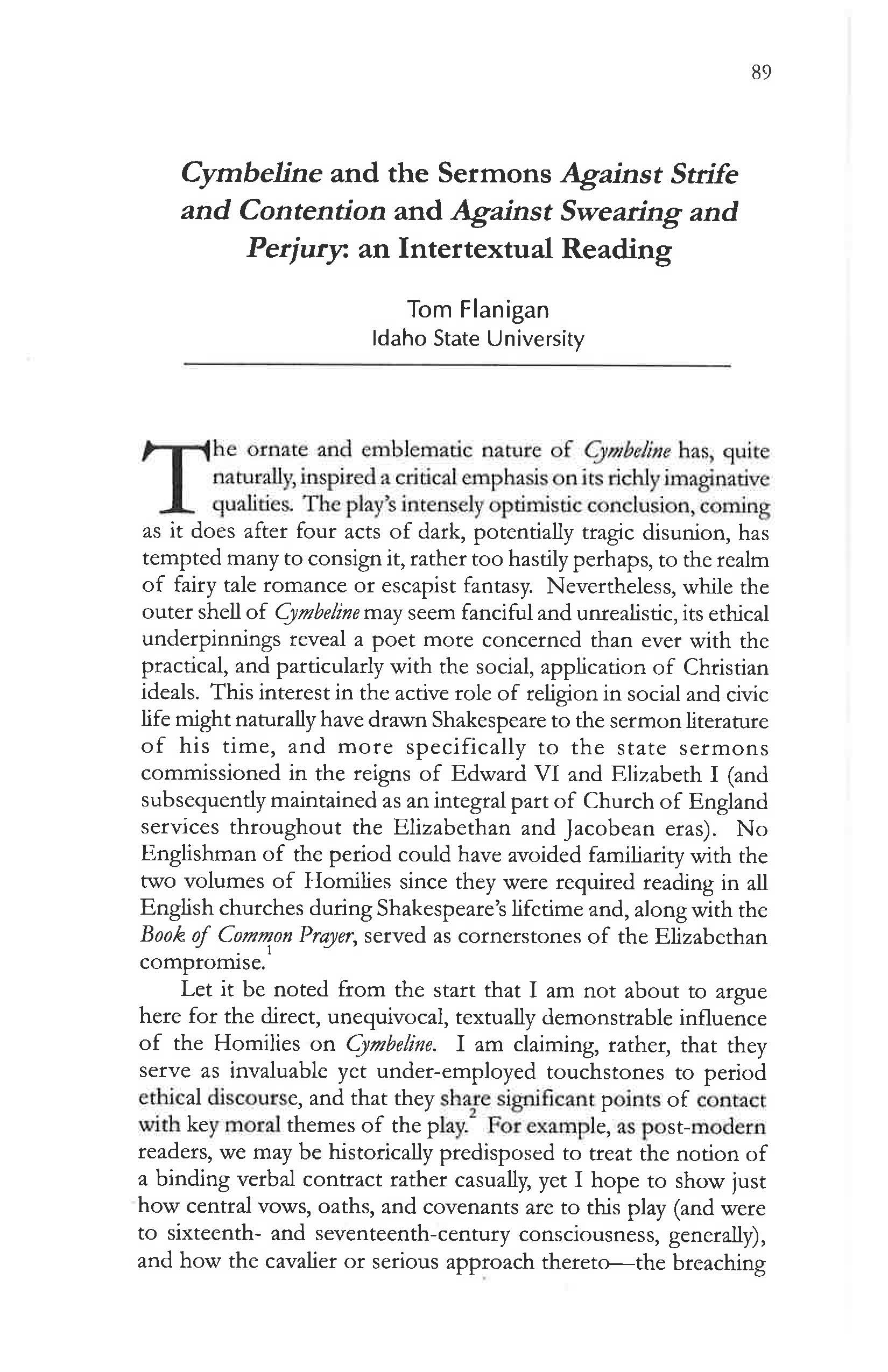Cymbeline and the Sermons Against Strife and Contention and Against Swearing and Perjury: an Intertextual Reading
Main Article Content
Abstract
The ornate and emblematic nature of Cymbeline has, quite naturally, inspired a critical emphasis on its richly imaginative qualities. The play’s intensely optimistic conclusion, coming as it does after four acts of dark, potentially tragic disunion, has tempted many to consign it, rather too hastily perhaps, to the realm of fair tale romance or escapist fantasy. Nevertheless, while the outer shell of Cymbeline may seem fanciful and unrealistic, its ethical underpinnings reveal a poet more concerned than ever with the practical, and particularly with the social, application of Christian ideals. This interest in the active role of religion in social and civic life might naturally have drawn Shakespeare to the sermon literature of his time, and more specifically to the state sermons commissioned in the reigns of Edward VI and Elizabeth I (and subsequently maintained as an integral part of church of England services throughout the Elizabethan and Jacobean eras). No Englishman of the period could have avoided familiarity with the two volumes of Homilies since they were required reading in all English churches during Shakespeare’s lifetime and, along with the Book of Common Prayer, served as cornerstones of the Elizabethan compromise.1
